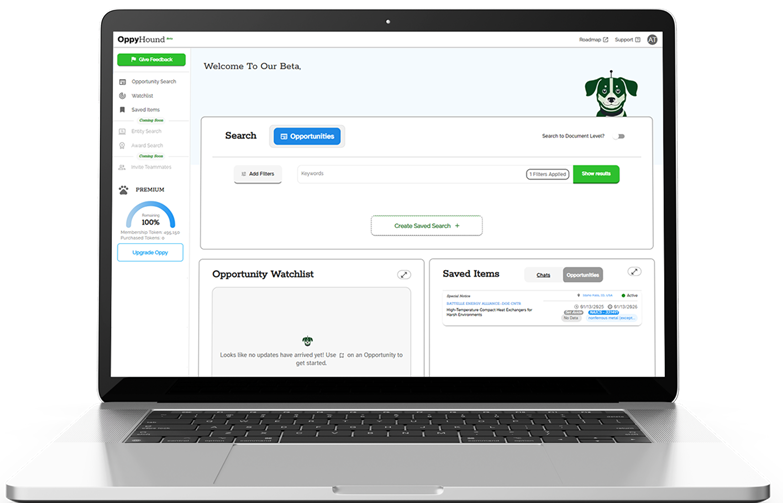Learning how to read and respond to government solicitations is essential for any startup entering federal contracting. It is one of the most valuable skills you can develop on your contracting journey.
Solicitations are formal invitations to bid on government work, usually issued in the form of an RFP (Request for Proposal) or RFQ (Request for Quotation). Understanding what each section of RFP or RFQ means and how to craft a compliant, compelling response can save your business time, avoid costly mistakes, and increase your win rate.
This guide will walk you through how to read solicitations, understand their structure, and focus on the elements that matter most.
Government agencies use various types of solicitations for government bids, but the most common are Request for Proposal (RFPs) and Request for Quotation (RFQs).
Request for Proposal (RFP):
Used when the government has a problem to solve but isn’t entirely sure of the best solution. RFPs often require a more comprehensive, detailed proposal outlining your approach, methodology, and unique value proposition.
Request for Quotation (RFQ):
Typically used for more straightforward procurements where the government knows exactly what it needs and is primarily seeking price quotes. RFQs are generally less complex and focus on direct responses to specified requirements. RFQs are also normally used for task or delivery orders in an MA IDIQ contract.
Regardless of the type, every solicitation is a legal document with specific requirements. Resist the urge to skim. Print it out, highlight key areas, and take detailed notes.
Before you dive into writing, take time to carefully review the full solicitation. A structured first read helps you spot eligibility, requirements, and potential red flags early.
Learn the top 100 government contracting acronyms and terms
Before investing significant time and resources in government contract opportunities, determine if your startup is a right fit for the opportunity. This involves more than just a surface-level match of services. You should consider your relationship with the customer (the closer the better), the type of work (scope) related to your past experience, the size of the work (dollar value) compared to your highest or average contract values, and the past performance requirements.
NAICS Codes: Every solicitation is tied to one or more NAICS codes. Ensure your primary NAICS code (registered in SAM.gov) aligns with the solicitation’s requirements.
Small Business Set-Asides: Many bid opportunities are set aside specifically for small businesses or particular disadvantaged groups (e.g.,Woman-Owned Small Business (WOSB), Historically Underutilized Business Zone (HUBZone)). Verify your business’s certifications and ensure you meet the size standards for the specified NAICS code. You can find detailed size standards on the Small Business Administration (SBA) website.
Technical Requirements: Do you possess the technical capabilities, personnel, and resources to fulfill the stated scope of work? Be brutally honest in your assessment.
Past Performance: Does the solicitation require specific past performance in similar projects? Assess whether your startup has the necessary track record. If not, consider a teaming arrangement.
While every section is important, certain areas demand your immediate attention when reviewing government bids:
While every section is important, certain areas demand your immediate and most thorough attention:
Learn the essentials of registration and preparation for winning government contracts.
Failure to comply with fundamental requirements is the quickest way to get disqualified.
If you’re new to government contracting, take a deep dive into how startups can get started.
Reading and responding to government solicitations isn’t just about checking boxes; it’s about demonstrating that your business truly understands the agency’s needs and can deliver results. By carefully reviewing scope requirements, tailoring your response to evaluation factors, and staying compliant with every detail, you give your proposal the best chance to succeed.
For startups, this process might seem daunting, but with practice and the right tools you can turn solicitations into opportunities for growth. OppyHound simplifies this process by helping you search, analyze, and extract the key requirements from solicitations with advanced AI-powered feature in minutes, not hours.
Ready to make your proposal process faster and smarter? Sign up free with OppyHound and start finding opportunities tailored to your business today.
